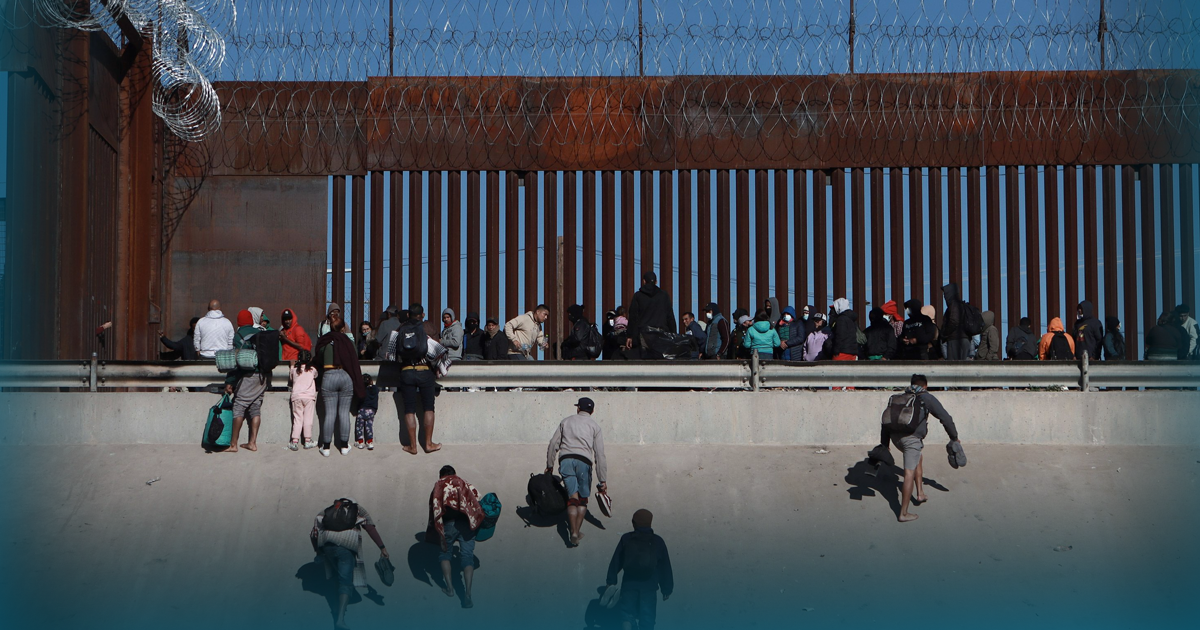Three people involved with the discussions said that the White House is thinking of unilaterally implementing a broad crackdown at the southern border by utilizing elements of federal immigration law that Donald Trump has frequently invoked.
The administration has been looking into options that Joe Biden may use independently of Congress without their consent after Republican lawmakers blocked a negotiated border package earlier this month, according to several officials and people with knowledge of the discussions. Though it’s unclear how the administration would structure any such executive acts to withstand the inevitable legal challenges, the ideas are far from final. Regarding confidential White House negotiations, the officials and people with knowledge of the discussions provided comments to the Associated Press under the condition of anonymity.
White House Has Been Criticizing Congressional Republicans
Given that immigration and border security have been two of President Biden’s greatest political liabilities since taking office, his team’s investigation of these options highlights the strain Biden is facing this election year. For the time being, the White House has been criticizing congressional Republicans for not moving forward with border legislation that the GOP had demanded. However, the administration is also aware of the political risks that the president may face from a large migrant population, so they are frantically trying to figure out how Biden could solve the issue on his own.
“No executive action, no matter how aggressive, can deliver the significant policy reforms and additional resources that Congress can provide and that Republicans rejected,” emphasized White House spokeswoman Angelo Fernández Hernández.
The administration emphasized that in order to secure our border and improve our dysfunctional immigration system, Congress must enact important policy changes and give extra resources. For this reason, it spent months negotiating in good faith to offer the toughest and fairest bipartisan border security package in decades. Congressional Republicans rejected what border officers have stated they need, opted to prioritize partisan politics over our nation’s security, and then took a two-week vacation.

From record highs in December to January, the number of arrests for illegal border crossings decreased by half, making it the third lowest month of President Biden’s administration. However, officials worry that those numbers might eventually grow once more, especially as the presidential election in November draws closer.
Throughout his tenure in office, Trump—the presumed Republican nominee to challenge Biden this fall—repeatedly used the 212(f) power, most notably with his divisive ban on travel from countries with a majority of Muslims. On his first day in office, Biden issued an executive order lifting the restriction.
However, according to those involved with the negotiations, Biden is already considering how he would use that ability to address his own immigration difficulties. There are several potential uses for it. The restriction may begin, for instance, when a particular threshold of border crossings is reached. This is similar to a clause in the Senate border agreement that would have initiated migrant expulsions in the event that the average daily number of illegal border crossings for five days exceeded 5,000.
The Republican speaker of the House, Mike Johnson, has likewise urged Biden to make use of the 212(f) authority. However, the White House continues to promote the comprehensive immigration legislation that Biden also proposed on his first day in office, which has provisions that would essentially limit the president’s ability to forbid immigrants under that authority.
Also Read: Biden Demands That the US Give Billions to Ukraine and Holds Putin Accountable for Navalny’s Death


Leave a Reply